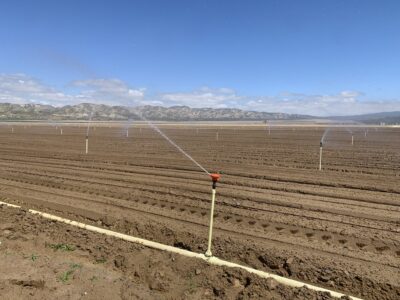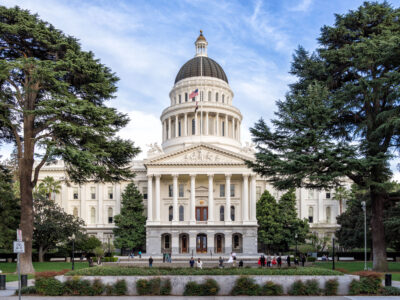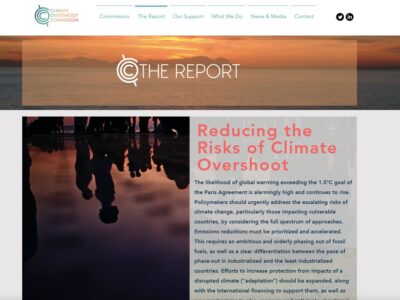General
One More Key Groundwater Bill Just Became Law
Gov. Newsom signs AB 779, which addresses inequities in California’s complicated groundwater adjudication process.
Earlier this week the San Francisco Chronicle declared that California’s legislative session would close with just a single bill addressing injustices in the state’s water rights system. Now you can add one more to the list. Gov. Newsom signed Assembly Bill 779 into law this week. It’s an important step to reforming the state’s murky—often …
Continue reading “One More Key Groundwater Bill Just Became Law”
CONTINUE READINGCalifornia Enacts Major Water Law Reform Legislation–But More Changes Are Needed
New law explicitly authorizes State Water Board to require water users to verify their water rights
The California Legislature has enacted and Governor Gavin Newsom recently signed into law SB 389, an important water law reform measure authored by State Senator Ben Allen. California has one of the most antiquated and outdated water rights systems of any Western state. To put it bluntly, California currently faces a 21st century water supply …
Continue reading “California Enacts Major Water Law Reform Legislation–But More Changes Are Needed”
CONTINUE READINGA(nother) California “Regulatory Takings” Case Heads to the Supreme Court
Newly-accepted case pits private property rights against government land use authority
The U.S. Supreme Court has agreed to hear and decide an important “regulatory takings” case from California that has major implications for federal, state and local governments nationwide. The case is Sheetz v. County of El Dorado, Docket No. 22-1074. Even before the justices granted review in the Sheetz case last Friday, the Court’s 2023-24 …
Continue reading “A(nother) California “Regulatory Takings” Case Heads to the Supreme Court”
CONTINUE READINGThe Not-So-Good News About Carbon Offsets
Recent studies show the significant limits to some carbon offsets. What’s that mean for tropical forest jurisdictions?
In case you missed it: there’s some good news about Amazon deforestation continuing to plunge. Jason Gray and I spoke recently about why tropical deforestation is down in Brazil, Colombia, and Indonesia. That’s good news because deforestation of tropical forests is a huge source of greenhouse gas emissions. The World Resources Institute’s Forest Pulse report …
Continue reading “The Not-So-Good News About Carbon Offsets”
CONTINUE READINGThe Overshoot Commission Addresses Geoengineering
The Commission tries to make it OK to talk about – not do – solar geoengineering. Its report proposes a moratorium, coupled with efforts to carefully build knowledge.
In this, my third post on the recently released report of the Climate Overshoot Commission, I’ll discuss their treatment of the most challenging and controversial part of their mandate, Solar Geoengineering or Solar Radiation Modification (SRM). As I noted in my introductory post on the Commission, I served as an advisor to the Secretariat and …
Continue reading “The Overshoot Commission Addresses Geoengineering”
CONTINUE READINGCalifornia is Suing Big Oil Thanks to Journalism
California’s climate and consumer protection lawsuit against Big Oil was made possible by the past work of journalists. What’s the state of climate journalism now?
The state of California has joined the party. By “party” I mean the increasingly ambitious climate liability litigation against Big Oil. And when California shows up at the party, the volume goes way up. There’s already been a lot of smart analysis on the legal arguments (including by UCLA’s Cara Horowitz here). I’d like to …
Continue reading “California is Suing Big Oil Thanks to Journalism”
CONTINUE READINGAction on Methane
California’s Subnational Initiative
At Climate Week New York yesterday, California announced a significant new initiative for Subnational action on methane. The UC Berkeley Center for Law, Energy, and Environment (CLEE) helped develop the Initiative, so I’m particularly pleased to highlight it. Methane As has been discussed previously in Legal Planet, methane is a colorless, odorless, flammable gas. It …
Continue reading “Action on Methane”
CONTINUE READINGA Radical Proposal Hidden in Plain Sight in the Overshoot Commission Report
The Commission’s recommendations on emissions include a fossil phaseout much stronger than anything now proposed, which could materially advance climate action.
Continuing my discussion of the report of the Climate Overshoot Commission released last week, today I dig into their recommendations on mitigation. As you may recall, the Commission’s informal (but serious) job description was to speak of elephants in the room and unclothed emperors: to say things that are true and important about climate risks …
Continue reading “A Radical Proposal Hidden in Plain Sight in the Overshoot Commission Report”
CONTINUE READINGWhy is there a Carrot Boycott in Cuyama Valley?
Small farmers and rural residents are calling for a boycott against Bolthouse and Grimmway Farms. Here’s what it says about California’s effort to manage groundwater.
When California lawmakers enacted the Sustainable Groundwater Management Act in 2014, it was an effort to tame the wild, wild west of water. Nearly a decade later, there’s been some progress creating local sustainability plans, but Big Ag corporations are still hogging water and bullying smaller groundwater users. Look no further than the fight heating …
Continue reading “Why is there a Carrot Boycott in Cuyama Valley?”
CONTINUE READINGThe Climate Overshoot Commission Releases its Report
A dozen global leaders weigh in on the risk of exceeding the Paris temperature targets and what it means for climate response.
The Climate Overshoot Commission recently completed its work, releasing its report at the United Nations last Thursday, September 14. This report comes in conjunction with the U.N. General Assembly and a collection of high-level climate and environment events, including the Sustainable Development Goals Summit, 18-19 Sept, and the Climate Ambition Summit, 20 Sept. The Climate …
Continue reading “The Climate Overshoot Commission Releases its Report”
CONTINUE READING











